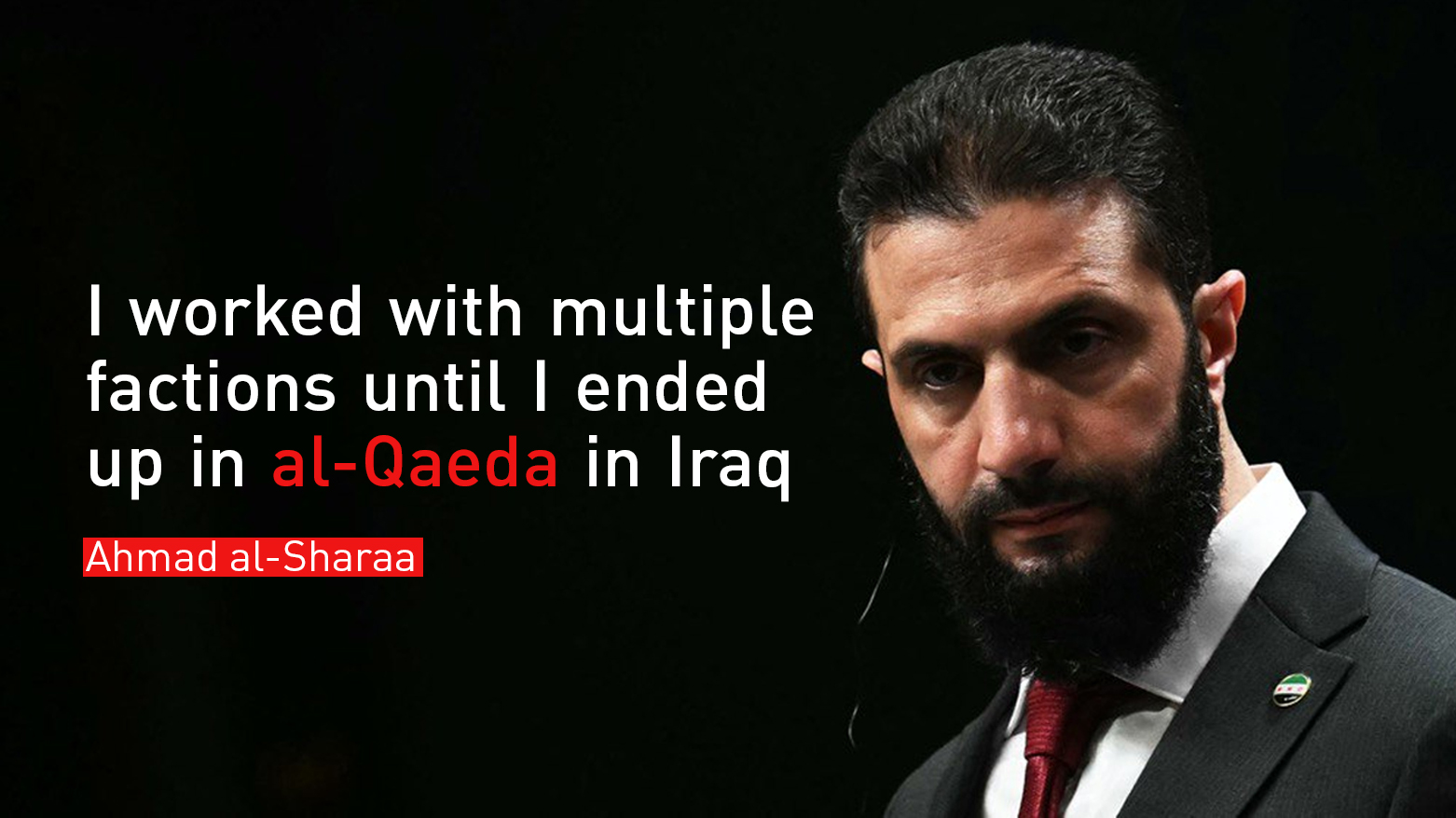Syria’s Interim Leader Ahmad al-Sharaa Reveals His Journey from al-Qaeda in Iraq to HTS Leadership
Al-Sharaa stated that he worked with multiple factions in Iraq, but over time, they consolidated under al-Qaeda. “Eventually, I found myself within al-Qaeda in Iraq" he admitted.

ERBIL (Kurdistan24) – Ahmad al-Sharaa, Syria’s interim president, has detailed his journey from joining al-Qaeda in Iraq to leading Hayat Tahrir al-Sham (HTS) in Syria, shedding light on key moments that shaped his ideological and military path.
In an interview with The Rest of Politics podcast, hosted by Alastair Campbell, former spokesman for UK Prime Minister Tony Blair, and former British Conservative minister Rory Stewart, al-Sharaa spoke about his early political awakening, his involvement in Iraq, and his rise to leadership in Syria.
Early Political Awakening and Decision to Go to Iraq
Al-Sharaa recalled that at 19, he began questioning the political system in Syria. “At that time, I started feeling the weight of oppression, not just in Syria but across the region,” he said, emphasizing the significant influence of the Palestinian uprising on his worldview.
Walking through the ancient alleys of Damascus, he felt a deep connection to history but also a stark contrast with the authoritarian rule governing the country. “I was convinced that this system had to fall,” he noted.
Seeking experience in armed conflict, al-Sharaa decided to go to Iraq, coinciding with the U.S. invasion. “There was a massive Arab and Islamic response to the American intervention,” he explained. His objectives were twofold: gaining military experience and defending the people of Iraq.
Joining al-Qaeda in Iraq and Time in Prison
Al-Sharaa stated that he worked with multiple factions in Iraq, but over time, they consolidated under al-Qaeda. “Eventually, I found myself within al-Qaeda in Iraq,” he admitted.
His trajectory took a drastic turn when he was imprisoned in multiple U.S.-run facilities, including Abu Ghraib, Camp Bucca, Camp Cropper, and al-Taji prison. “During this period, my awareness evolved significantly, and I noticed major changes in my character,” he reflected.
Inside prison, he encountered extremist ideologies but distanced himself from sectarian war narratives. “Some factions in prison had issues with me because I did not later adopt ISIS’s ideology,” he stated.
Return to Syria and Formation of HTS
Two days before the Syrian uprising began in 2011, al-Sharaa was released from prison and quickly made plans to return to Syria. “I set clear conditions for our work in Syria: first, to avoid repeating Iraq’s experience, and second, to prevent sectarian conflict while focusing on toppling the regime,” he emphasized.
Initially, he started with only six members, but within a year, their ranks grew to 5,000, spreading across Syria’s provinces. However, his rise to power created tensions with al-Qaeda leadership in Iraq.
“They were surprised by our rapid growth and tried to impose their methods on us, but I rejected that,” he said, explaining how this led to a major rift between them. “A full-scale war erupted, costing us over 1,200 fighters and 70% of our strength, but we rebuilt ourselves with a renewed focus on fighting the regime and countering threats like ISIS.”
Al-Sharaa’s revelations provide insight into his transformation from an insurgent in Iraq to a key player in Syria’s ongoing conflict, underscoring the complexities of the region’s militant landscape and his current role in shaping Syria’s political future.